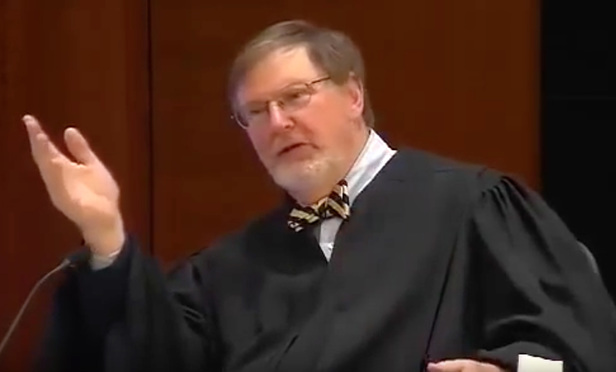Events occurring in recent days following the issuance of President Trump’s Jan. 27 executive order on immigration should by now be familiar to all of us. The president’s order purported to (1) generally suspend refugee admissions to the United States for 120 days, (2) prohibit nationals from seven Muslim-majority nations from entering the country for at least 90 days, and (3) indefinitely suspend Syrian refugee admissions until further order of the executive. Issuance of the order created chaos at a number of airports, and caused the filing of at least four lawsuits in federal courts seeking temporary stays of enforcement. Perhaps the most important of these lawsuits was the one filed in Seattle by the attorneys general of the states of Washington and Minnesota, seeking a declaration that the order is both illegal and unconstitutional, and similarly seeking a suspension of enforcement. The case was assigned to Judge James L. Robart of the United States District Court for the Western District of Washington. After hearing oral argument from lawyers representing the two states and the government of the United States, Robart issued a temporary restraining order mandating that enforcement of the order be stayed, nationwide, pending full briefing and argument on the states’ application for a preliminary injunction. The court’s order was issued on Friday evening, Feb. 3, and took effect immediately. It was affirmed by the Court of Appeals for the Ninth Circuit.
The next morning, President Trump issued a statement on Twitter that read as follows: “The opinion of this so-called judge, which essentially takes law enforcement away from our country, is ridiculous and will be overturned.” We take no position in this editorial on the merits of the government’s argument that Judge Robart abused his discretion in issuing the temporary restraining order. We also acknowledge that President Trump has a constitutional right to criticize another branch of government, and we certainly can understand his frustration and even anger at the blocking of his order, perceived by him and others to be of the utmost importance to the national security interests of our country. Even given all of that, we nonetheless think that the president’s statement crossed a constitutional red line. His ad hominem and personal attack on Judge Robart, by use of the words “so-called” in referring to the judge, suggested that Judge Robart is an illegitimate member of the judiciary, someone whose decisions are not deserving of respect. Coming from the president, such statements are reprehensible and must be condemned in the strongest terms by all who subscribe to the principles of separation of powers and the independence of the judiciary—two of the most important bedrocks of our system of government. We do so here and we urge others to similarly condemn such statements by communicating their opinion to the White House and to their political representatives.
This content has been archived. It is available through our partners, LexisNexis® and Bloomberg Law.
To view this content, please continue to their sites.
Not a Lexis Subscriber?
Subscribe Now
Not a Bloomberg Law Subscriber?
Subscribe Now
LexisNexis® and Bloomberg Law are third party online distributors of the broad collection of current and archived versions of ALM's legal news publications. LexisNexis® and Bloomberg Law customers are able to access and use ALM's content, including content from the National Law Journal, The American Lawyer, Legaltech News, The New York Law Journal, and Corporate Counsel, as well as other sources of legal information.
For questions call 1-877-256-2472 or contact us at [email protected]



